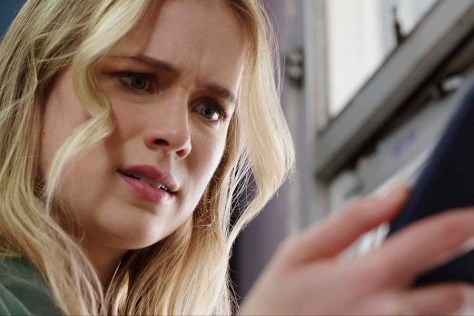
Based on the 1955 C. S. Forester novel The Good Shepherd, Greyhound stars Tom Hanks as Commander Ernest Krause, a steely World War II Navy captain leading up an Allied convoy through the treacherous “Black Pit” of the Atlantic Ocean. Surrounded on all sides by Nazi U-boats, Krause and the men aboard the USS Keeling are threatened day and night by enemy ships outside of their line of sight. We see the Battle of the Atlantic through the eyes of the intrepid US soldiers as they fend off the German fleets and courageously make their way to the ports of Liverpool.
This is hardly Hanks’ first involvement in a WWII project. As the lead in Spielberg’s Saving Private Ryan and executive producer for HBO miniseries Band of Brothers and The Pacific, he’s been behind some of the best depictions of the War on both the big and small screen. It’s strange, then, that he would come to the well once more for a film that’s so under the pedigree of his previous work. Hanks not only stars in the film but also translated Forester’s book into a screenplay that reads more like an instruction manual for how to steer a boat rather than a script for a feature film.
Ultimately, it’s Greyhound‘s strict adherence to accurate wartime jargon and seaman’s parlance that sinks it. Certainly realism and authenticity are qualities worth aspiring to but not at the expense of fleshed-out characters and compelling dialogue. Often times, it feels like Hanks threw naval buzzwords like “bearing”, “rudder” and “starboard” into a bingo cage, spun it around and penned the selections. Attempts at character development, like a miscalculated flashback to Krause’s love interest played by Elisabeth Shue, fall well short of what we need to emotionally invest in the largely nameless members of the crew. While the film’s impressive action sequences are all well-shot and tightly edited, they could just as easily appear in any other seabound war picture.
The direction by Aaron Schneider is so workmanlike, it makes Ron Howard seem quirky by comparison. Take away the opening and closing credit sequences and the film barely crosses the 80 minute mark. Each extended siege is solemnly bookended with fadeouts to title cards with the times and locations of the major portions of the mission. Even though Schneider has the ability to show us at least some of the enemy’s perspective, he locks his focus on the members of the Greyhound as the supposedly tense scenes of conflict boil down to Krause barking out commands and underlings scribbling down coordinates. Composer Blake Neely tries to juice things up with a predictably bombastic score but the film works best in the quieter moments, especially when one of the Nazi U-boat captains known as Grey Wolf taunts the Greyhound crew with antagonistic rhetoric via radio.
It’s not difficult to see what would draw Hanks to this role, as it’s squarely within his well-defined wheelhouse of All-American heroes like Captain Phillips and Captain Sully. While arguably no one does it better than he does, I’d like to see Hanks step a bit outside of his comfort zone more often at this stage in his career. Perhaps someone could take a crack at writing a believable antagonist role for arguably the most likable actor in Hollywood history. Even with a sturdy performance at the helm, Hanks’ star power alone isn’t enough to keep Greyhound afloat.
Score – 2/5
Reprinted by permission of Whatzup








